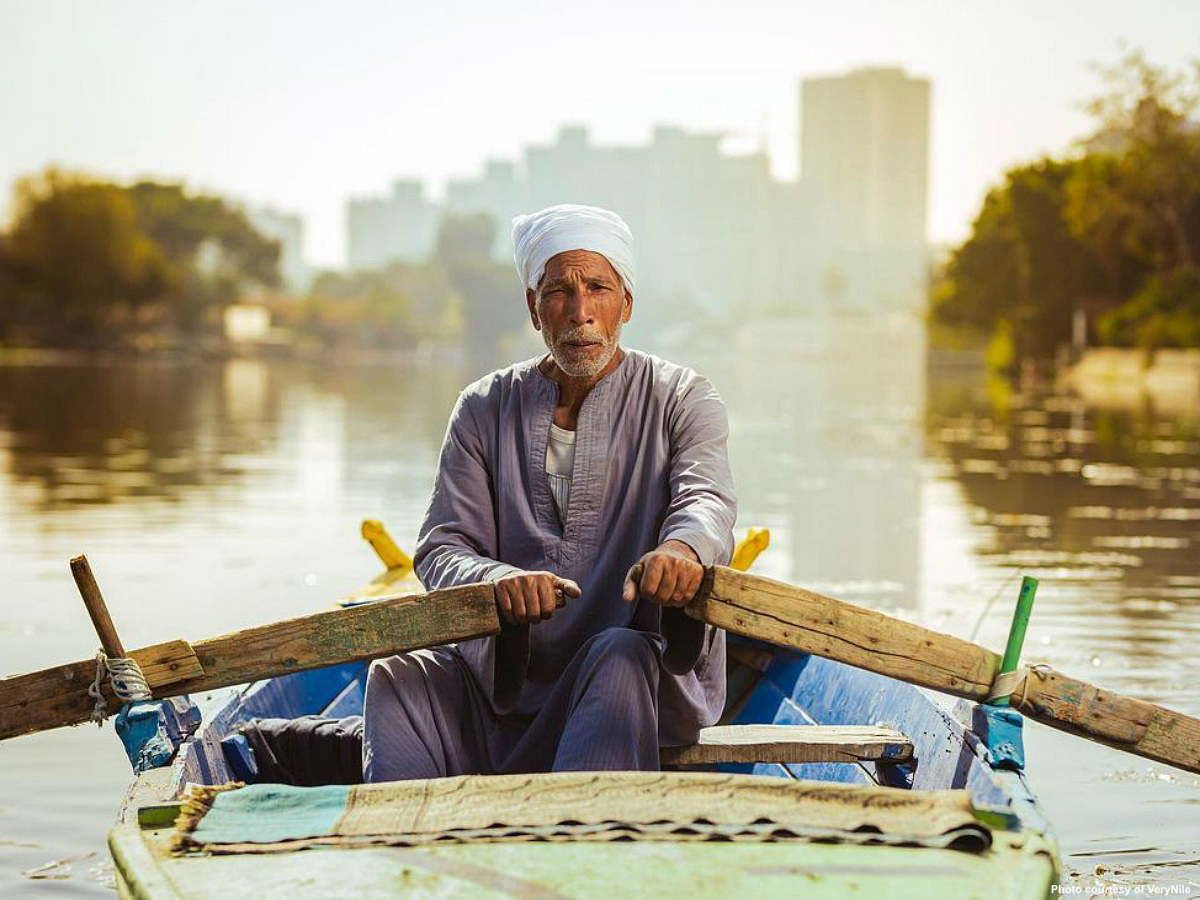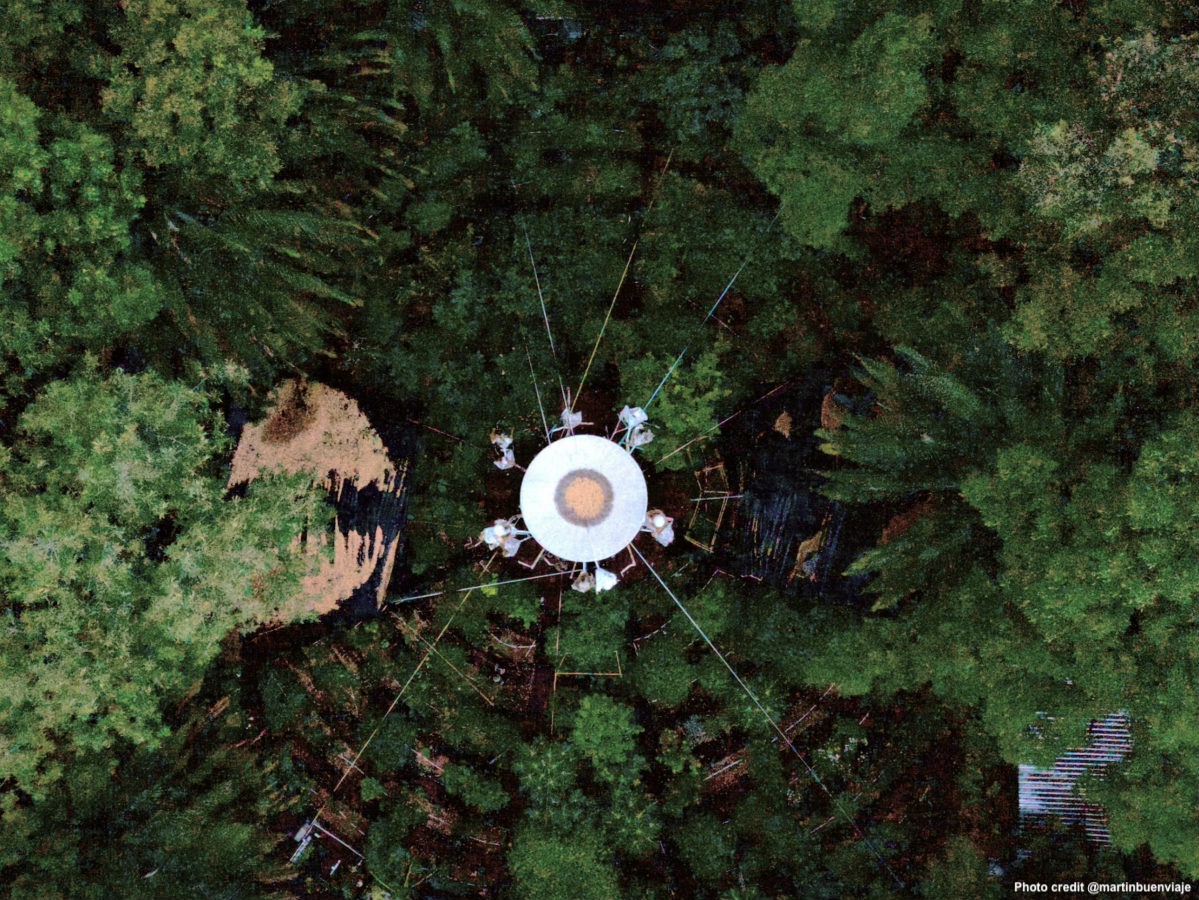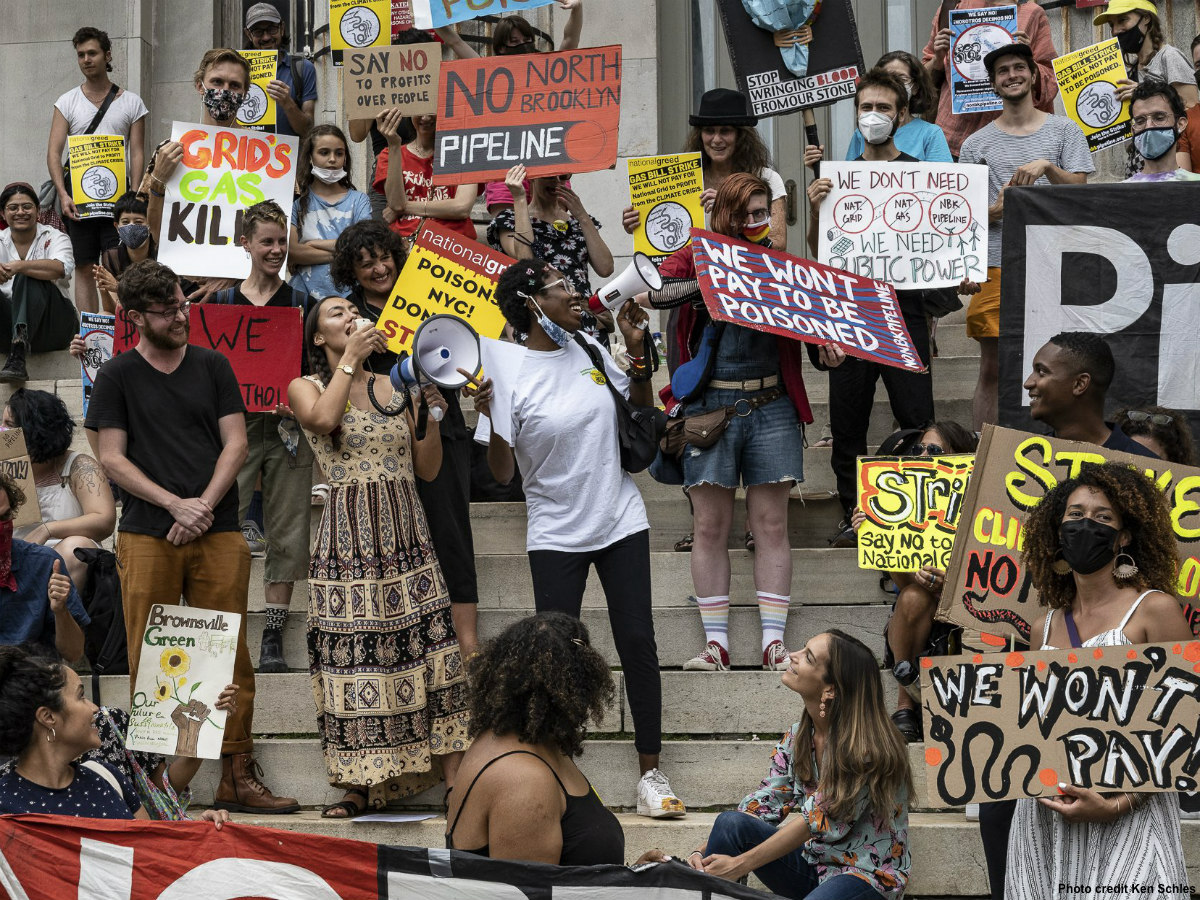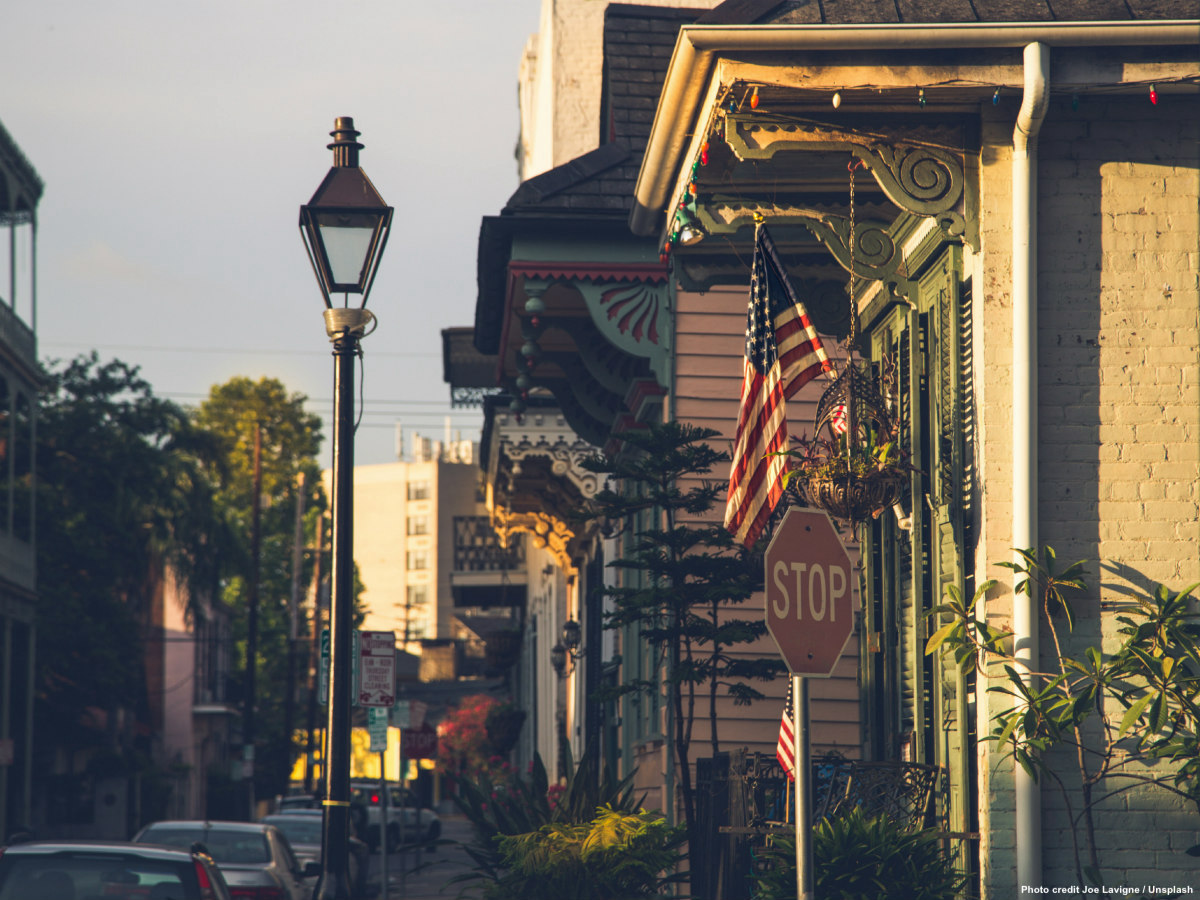Built to last an eternity, the Giza Pyramids wouldn’t have occurred without the Nile. This magnificent river, which flows northward for 4,160 miles from east-central Africa to the Mediterranean, facilitated the transportation of massive blocks of limestone for their construction using an incredible display of manpower. For reassurance that the people of Cairo can still work together with patience and vision, look to the work of VeryNile, a nonprofit founded to clean the Nile from plastic pollution.
Last weekend on World Clean Up Day a 7,500KG Giza-pyramid-like structure was built on the shores of Ahimsa in Cairo where the Nile played a more disheartened role for its construction. Groups of volunteers and fishermen picked up a total of 225,000 plastic bottles from the river to build this ‘huge pyramid’ because ‘that’s the size of the problem!’ claims VeryNile.
This is not a one-shot awareness campaign. Over the last three years VeryNile has brewed endless plans to clean things up in the river. Its three co-founders, Alban de Ménonville, Mostafa Habib and Salem Massalha, embody a strong passion to clean the Nile from plastic pollution and put an end to a pernicious paradox. Although the Nile is the most valuable natural resource which over 96 Million Egyptians rely on on a daily basis, no initiative was working on protecting this river and the environment in Egypt or Cairo from plastic pollution. However, its vital waters enabled cities to arise in the midst of a desert, and endure until today. Rivers have been essential to human progress.
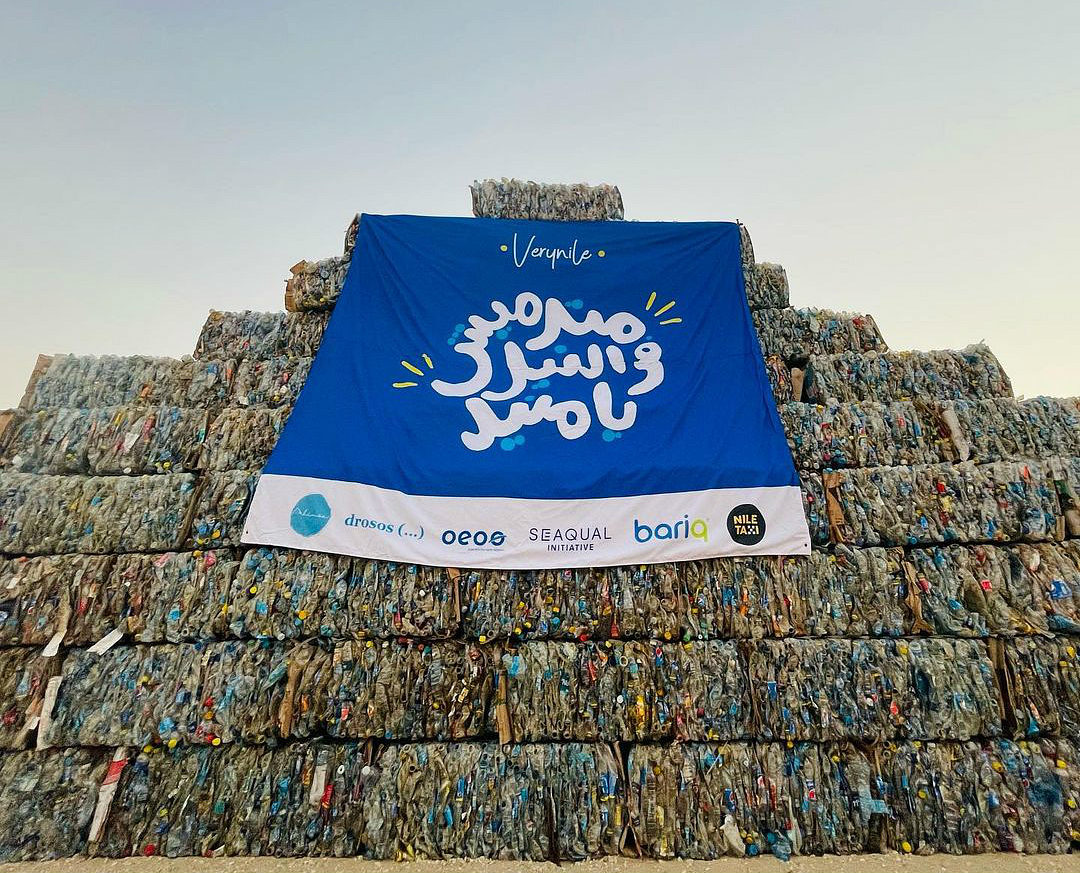
In 2019 VeryNile started to organise cleanups in the river in Cairo where others didn’t put much faith in their pharaonic enterprise. Then the embassies in the city started to support a group of volunteers in profusion and ‘things exploded,’ explains Salma El Lakany, one of the team members of VeryNile. Once the Covid-19 pandemic hit, it was very hard to organise volunteer events. So VeryNile moved on to cleaning the Nile more broadly and in a more sustainable way, involving local fishermen from the island al-Qursayah in the Giza neighbourhood.
Al-Qursayah is located in the heart of Cairo and yet is still a very rural area, with agriculture and farmers. We need to preserve it.
One can’t imagine, when the horizons are bounded by skyscrapers in one of the most densely populated cities in the world, that there could be an agricultural island in between the banks of the Nile in Cairo. Here life is at another pace and farmers and fishermen have lived for generations. But the plastic pollution in the Nile became too severe and threatened one of the main sources of the fishermen to subsist. In 2020 a study into plastic pollution in the river Nile has found that three-quarters of sampled fish contained microplastics, raising the alarm about the implications of plastic entering the human food chain.
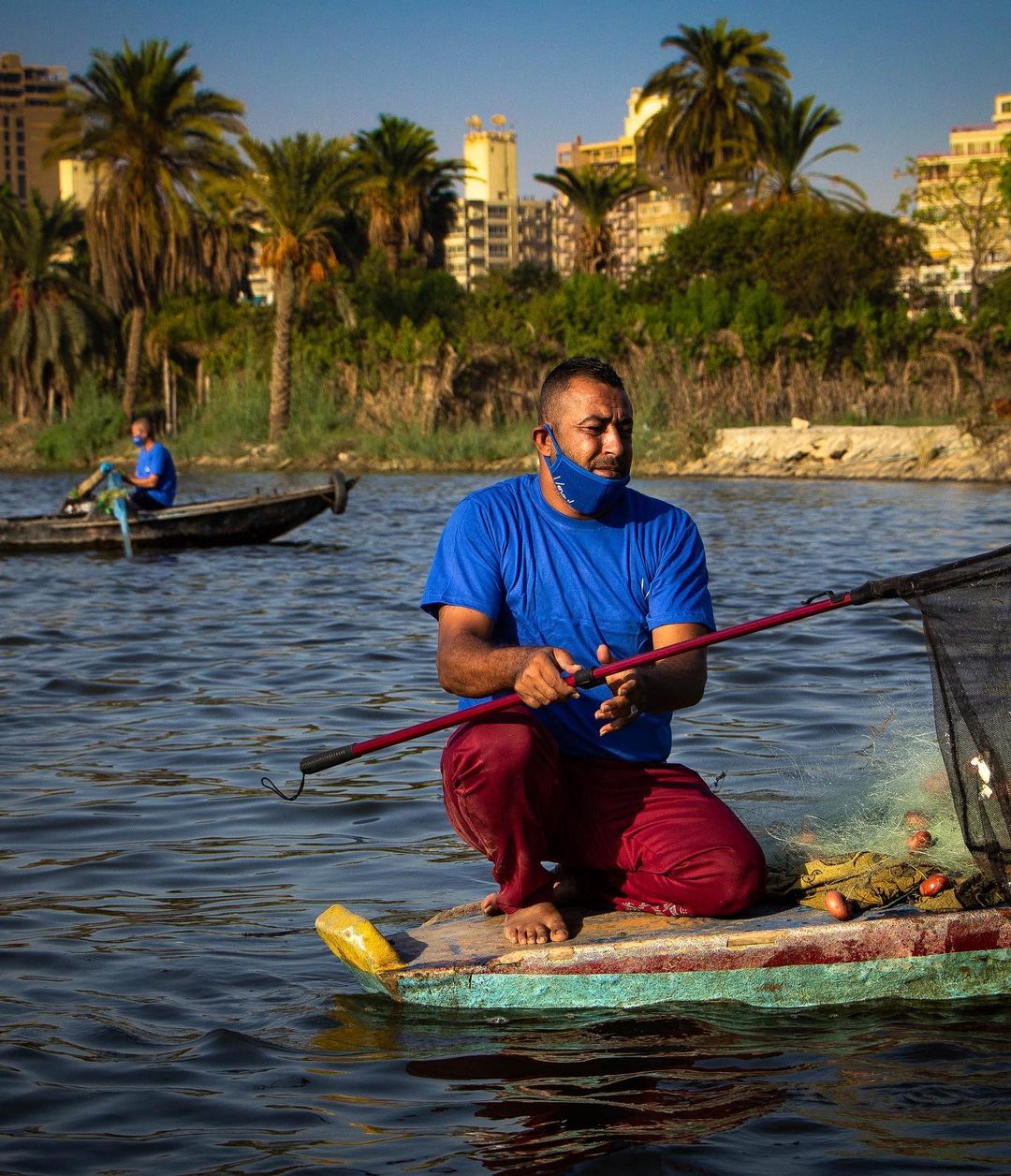
For the fishermen, the collaboration with VeryNile was momentous. This non-profit set up its recycling centre on al-Qursayah island as a ‘Hub’, they call it, to handle the plastic collected. Everyday, an army of 60 fishermen paddle with their boats around the islands – there are two more al-Warraq and al-Dahab – to collect as much plastic as they can, and bring it to the hub. They are paid 14 Egyptian pounds (about $0.72) for every kilogram collected to compensate for the loss of fish due to pollution.
We are all about protecting the environment but finding a balance with the social environment
So far VeryNile has collected 110,000 kg of plastic bottles from the Nile, the equivalent to over three million of plastic bottles over three years. Islanders like Sayed (pictured above) weigh and segregate the plastic depending on colour. After segregation the caps are then removed, they compact the plastics in bales wrapped with wire and are packed to be shipped to the recycling companies partners of VeryNile. Each bale weights 50kg and is identified with a unique code that certifies its origin from the Nile to produce a new yarn made by Seaqual in Spain used in the textile industry. Other plastic, different from plastic bottles, is packed and sent instead to Cemex Egypt to produce energy as a new source of fuel.
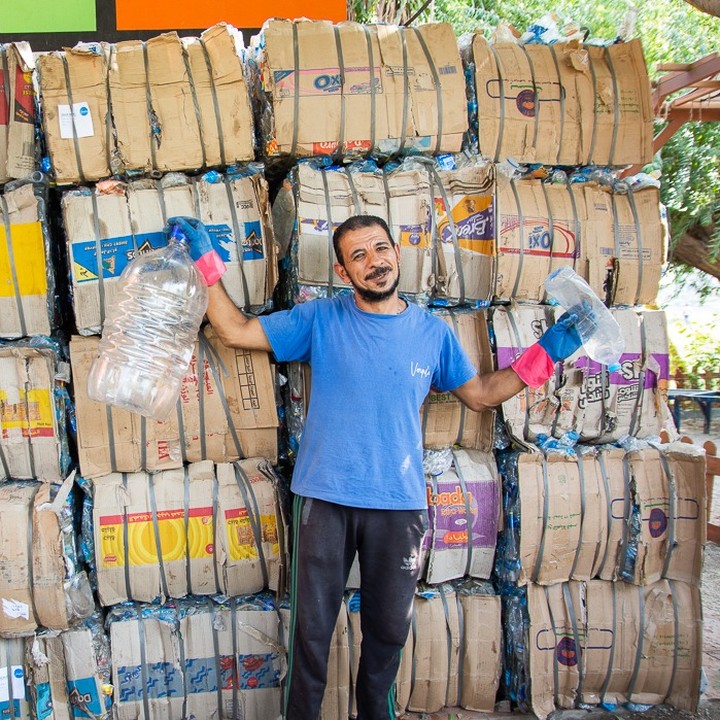
The cleanups have been a test of endurance and conviction. It took VeryNile one year of collecting and storing all the plastic until they found organisations that would work with them. Alban de Ménonville, one of the founders and a social entrepreneur established in Cairo, is a man on a mission. The hub of VeryNile on this quiet island, which has so far survived the urban development of Cairo and requires the use of boats to carry the plastic out of the island, seems to have other significance rather than purely logistics.
He sees this mission as improving the lives of local communities, especially on the island of al-Qursayah, where he tries to connect environmental and social consciousness. “We are on al-Qursayah for two reasons: to work and empower the residents that have no access to any service on the island. While the unemployment rate is, to our knowledge, above 60%, we provide job opportunities to around 40 families (out of around 300 inhabitants on the island).” And he continues, “the other reason is environmental. Al-Qursayah is located in the heart of Cairo and yet is still a very rural area, with agriculture and farmers. We need to preserve it.”
One year ago Salma El Lakany launched the VeryNile.Shop and opened an upcycling craft workshop with the local women on al-Qursayah. “I work with the women upcycling the plastic donated from households in Cairo that can’t be sent to recycling.” El Lakany sat down with one of the women of the island long ago to explain what they were up to and began gaining the trust of the community. “Now we have grown into a family. We learn from each other to the point that the women of al-Qursayah are innovating the technique and enhancing the finishing of the end product. We are in a continuous dialogue to balance productivity with the personal stories of these women that are empowered day by day.”
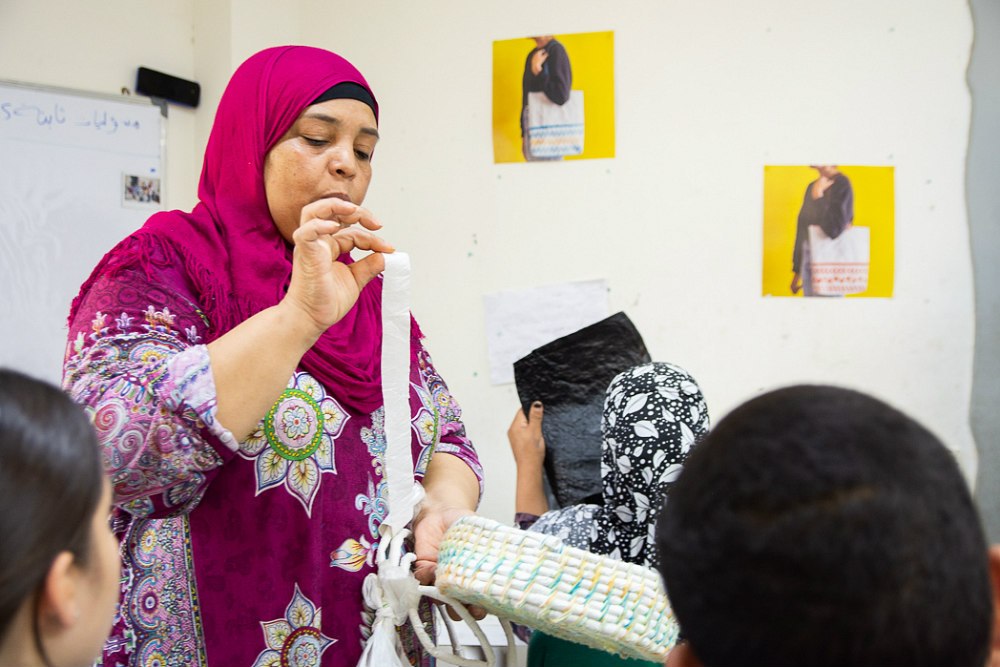
Currently VeryNile.Shop employs eight women on a full-time basis in craftsmanship and engages twenty women in total from different households to reach as many families as possible. “We are all about protecting the environment but finding a balance with the social environment,” says El Lakany about the work of VeryNile.
Al-Qursayah has become a place of resistance for the Nile river at a time when its inhabitants have been under continuous threat of displacement by the city authorities to make room for urban development. This pacific island has been the scene of violent disputes with the military over its ownership, claimed by the armed forces. The cleanups of VeryNile rely in part on the support of Drossos Foundation, corporations and the Ministry of Environment, involving public schools. Their continued commitment is key to deconflict the area and take the vision of VeryNile to the next level to end the malaise of plastic pollution while contributing to improve the local economy. “By locally developing the island with access to job opportunities, healthcare, etc,” envisions de Ménonville, “we are hoping to find a compromise between preserving green areas in Cairo and the need for urban development. The island inhabitants believe VeryNile can help them.”
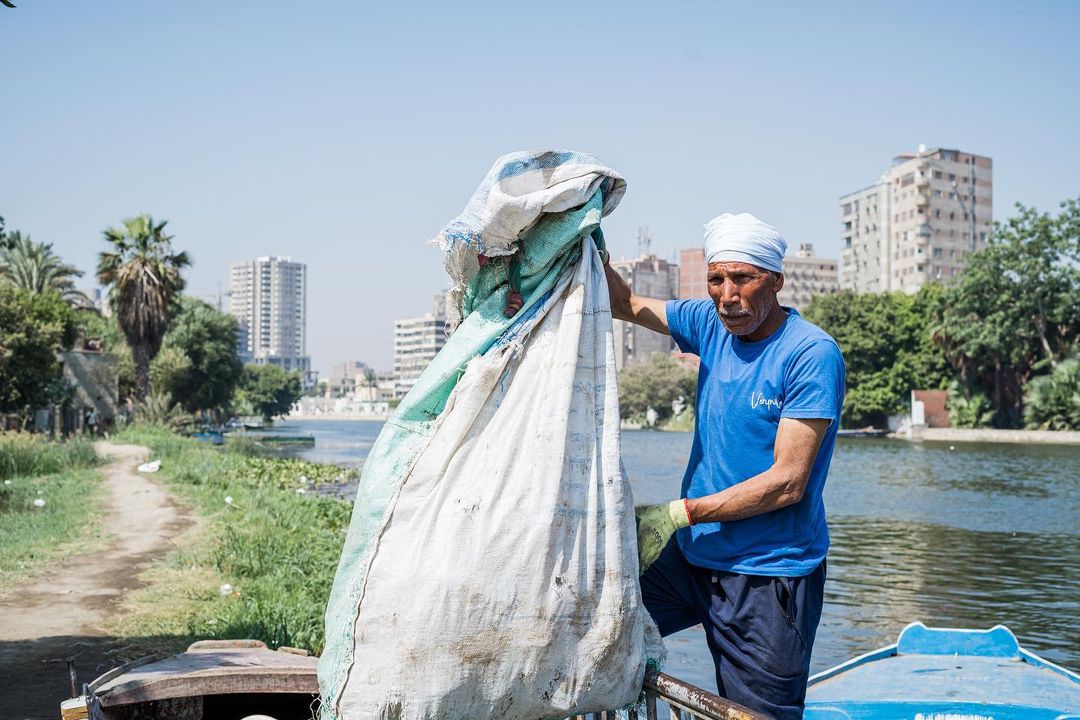
But structural maladies need to be overcome as well. Consider tap water, less eye-catching than the cleanups of the Nile river but a main driver to reduce bottled water consumption. The rule of thumb in Cairo is that it is not safe to drink water from the tap. But people who can’t afford bottled water do. Water scarcity is the next problem. Egypt depends entirely on its 55.5 billion cubic metres share of the Nile water that it receives annually — an amount that does not meet the needs of 100 million citizens. Environmental groups have demanded change but when the Egyptian government hinders any research, it effectively kicks the can down the road and leaves it to others to solve the environmental problem created in their own house. Human Rights Watch has recently issued a report on how the Egyptian government has severely curtailed environmental groups’ ability to carry out independent policy, advocacy, and field work essential to protecting the country’s natural environment.
This last resort of green in the urban fabric of Cairo has set in motion a local model of circular economy between fishermen and recyclers that will continue until the Nile is plastic free. This cycle could be replicated along the Nile beyond Egyptian territory. In fact, the founders are also in contact with initiatives in Uganda and Rwanda to clean up the river, which passes through 11 African countries.
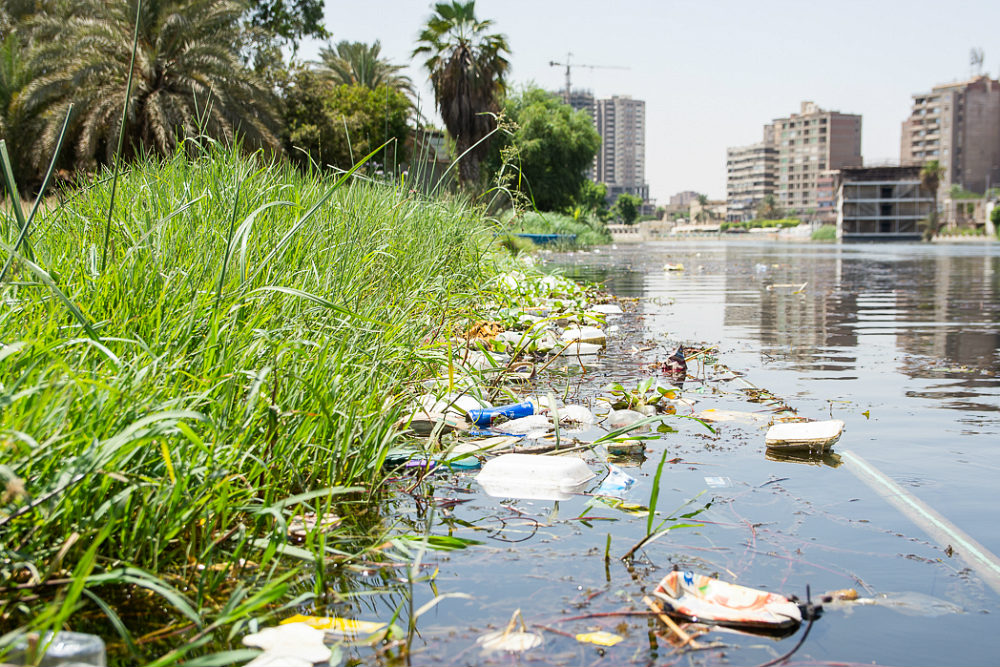
In the documentary film The Plastic Nile journalist Alex Crawford embarks on a 4,000-mile journey along the Nile, stopping in places like Kampala in Uganda and Juba in South Sudan, where a rapidly rising urban population combined with a lack of infrastructure makes it difficult to deal with waste. The Nile vomits thousands of tonnes of plastic waste annually into the Mediterranean and is one of 10 rivers that contribute 90% of the garbage in the world’s oceans according to the World Economic Forum.
The Nile has been just a dump for too long. Cleaning up the entire Nile, and empowering local economies depending on it, could be the work of generations. It is alarming and shaming to think how much these waters have been collectively neglected and mistreated. But it is also unexpected this success story of people in Cairo cleaning the Nile from plastic pollution. Hopefully we will see them at the next COP in Egypt.
